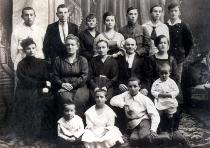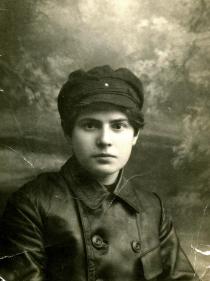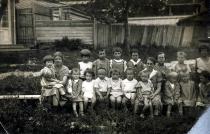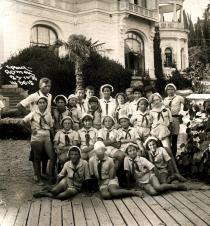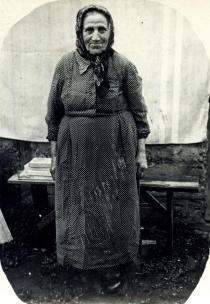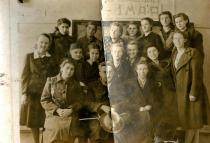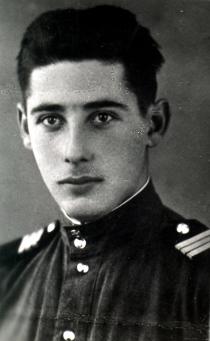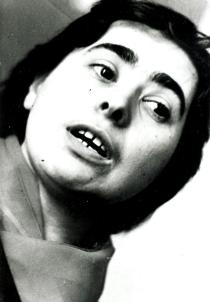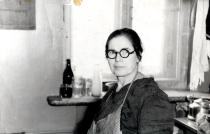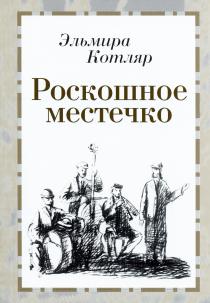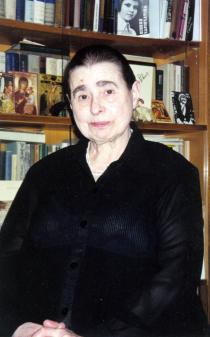This is my mother Anna Vaisman. This photo was taken by a photographer of the women's council where my mother was working then. This photo was taken in Kazan’ in 1925.
My mother grew up in a very poor family. She was the oldest of all children. She had to do a lot of work. To tell the truth, her family wasn't quite like a family. Grandmother Leya spent all her time with her father Vigdor and my mother had to do the housework. My mother was very proud and had a character. She had more problems than anybody else.
When they punished her and told her to ask forgiveness she was stubborn and never asked pardons and thus, set her mother in opposition. The situation in the family was hard. My mother had congenital glaucoma, but nobody knew about it and nobody intended to know. She needed at least glasses, but she didn't even get these.
My mother was not supposed to do some work like sewing or standing by a fireplace, but they thought she just didn't want to do this work. She was made to clean the farmyard and she worked there with my grandfather.
So, frankly speaking, she had a hard childhood. And I think that when all this revolutionary agitation began she got interested in it and joined Komsomol to somehow get distracted from home and her crazy family. Later my mother joined the party.
My mother and father met in Vasilkov. My mother didn't tell me anything about my father: how they met or what kind of person my father was. She was very withdrawn and stern and she was not good at sentimental talk. It probably had to do with her severe childhood years.
I was born in Kazan', Russia, in 1925. In Kazan' my mother worked in zhensoviet (women's council) [editor's note: Women's councils - departments, included in Party organs at the direction of the party Central Committee in 1918.
Their members were women activists and their tasks included ideological work with women industrial employees and peasants with the aim of their socialist education. Reorganized in 1929] with education of Tatar women. They didn't know Russian and were taught in likbez schools. We rented an apartment with three big rooms in a private house. My father was sent to study in Moscow in 1931 and our family followed him there: my mother, I and our nanny. My father entered Moscow College of Light Industry. My mother also entered this college after finishing a rabfak school.
In 1934 my father died. Four years later my mother received a room in a communal apartment in Moscow where we lived until 1966. Some time later after my father died my mother entered the History Department of Moscow University. My mother liked history much. At first her co-students who were young girls, gave her a hostile reception since she was a mature woman already.
I was 9 years old then. Those girls sniffed and chuckled about me, but then my mother somehow happened to become a head student of her course. They called her 'our Mom'. She was awarded a Stalin's stipend [Editor's note: Stalin's stipend was awarded to most advanced college and university students].
We were hard up, but we didn't lead secluded life. We received guests, especially when we lived in the hostel our door was always open. My mother was tight-lipped to talk about herself, but she was very sociable otherwise. She had many friends when a student and later she made friends with her colleagues and I had many school friends.

